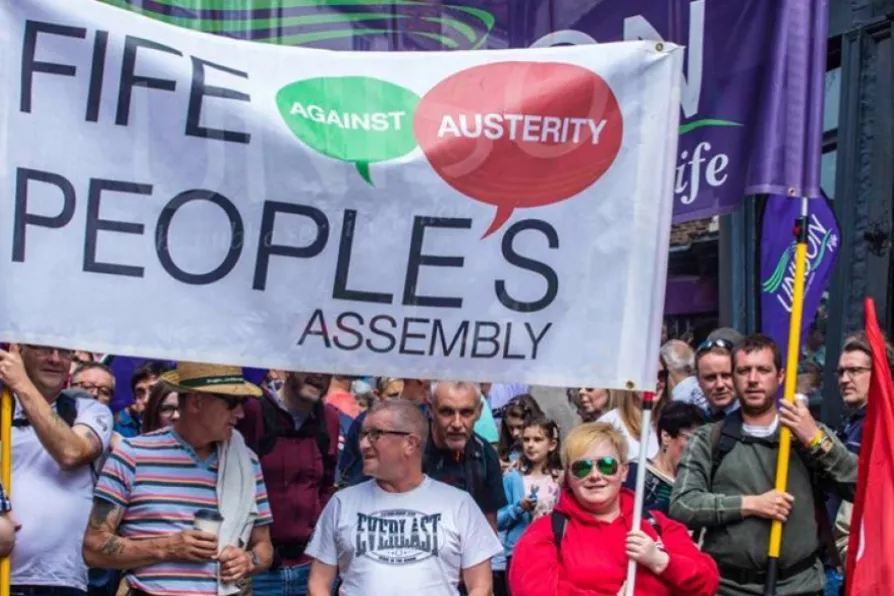The US-Israeli strikes against Iran are part of a decades-long war against the Islamic Republic which has refused to bow to US demands that it surrender its sovereignty, argues VIJAY PRASHAD


SINCE the People’s Assembly Scotland (PAS) last met for an annual general meeting, much has changed in the political landscape at Scottish, municipal, UK and international levels.
What has not changed is the unrelenting attacks on working people and their families’ living standards.
Cuts are implemented at local level because of the Scottish government’s inadequate allocation of funds that would allow councils to both provide appropriate services and protect jobs.

Campaigns against nuclear weapons on the Clyde, financial backing for arms firms and rising militarism are converging with solidarity for Palestine, as Scotland’s peace movement builds momentum ahead of the 2026 Holyrood election, says ARTHUR WEST

Ahead of next year’s parliamentary elections, ROZ FOYER warns that a bold tax policy is needed to rebuild devastated public services which can serve as the foundation of a strong, fair economy

Susan Galloway talks to ASH REGAN MSP about her “Unbuyable” Bill, seeking to tackle the commercial sexual exploitation of women in Scotland

From Workers’ Memorial Day to May Day rallies, TOM MORRISON examines the real challenges facing the labour movement as Reform UK’s glossy literature exploits legitimate grievances in traditional left strongholds










